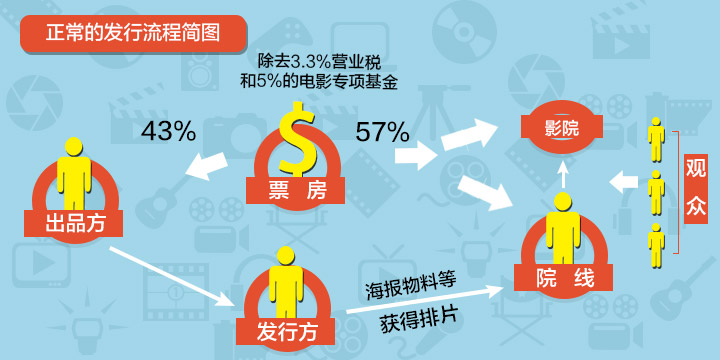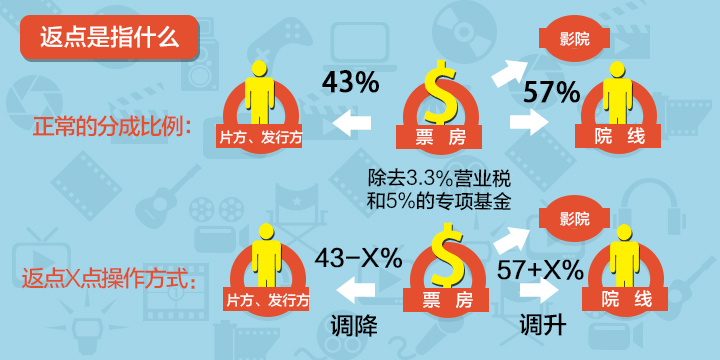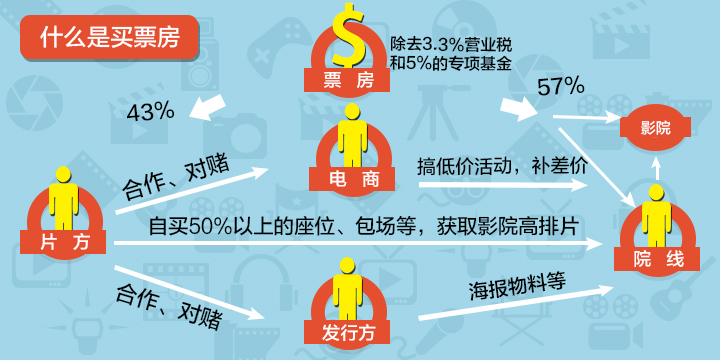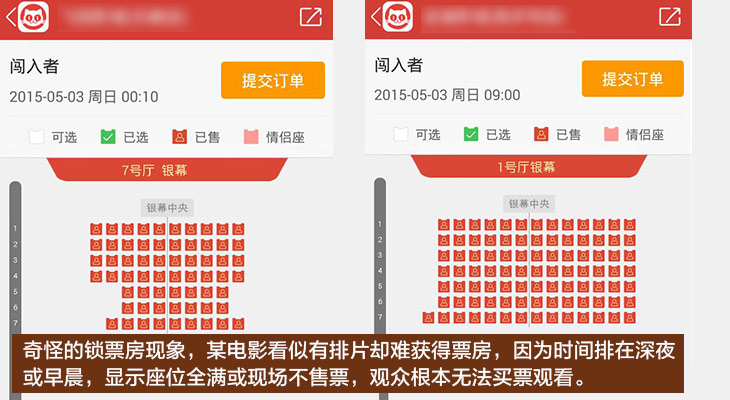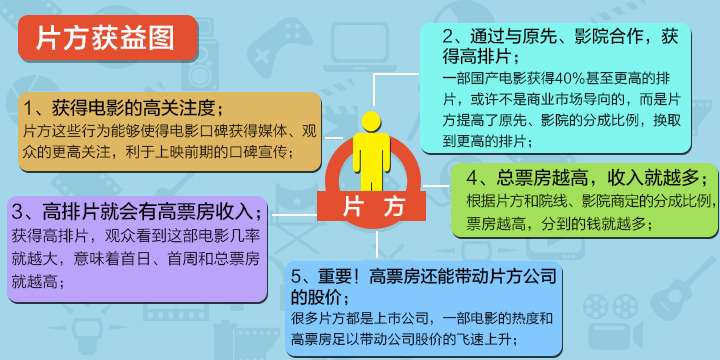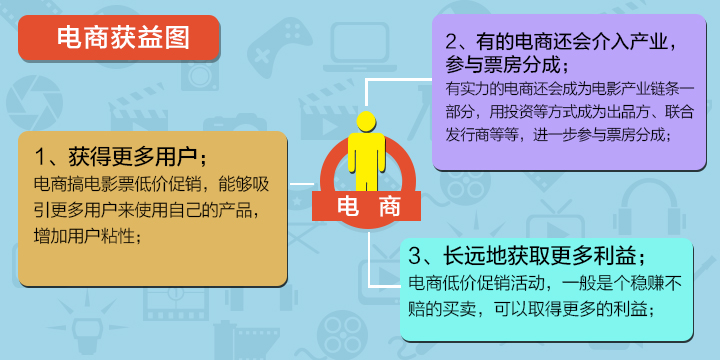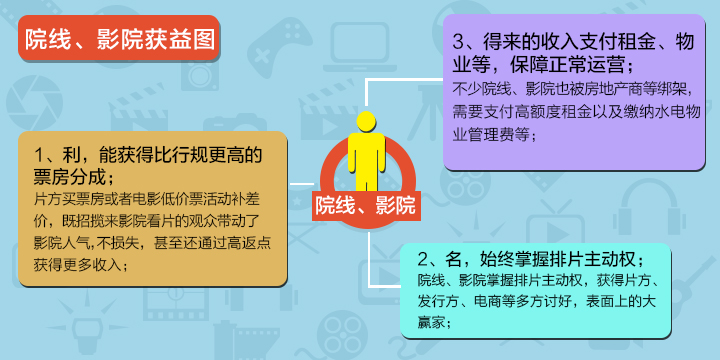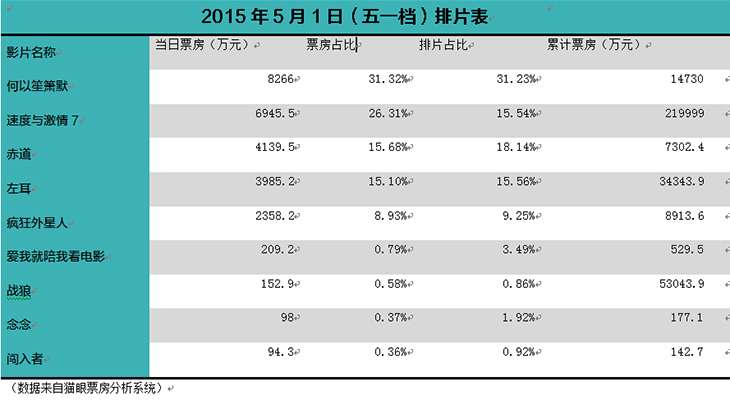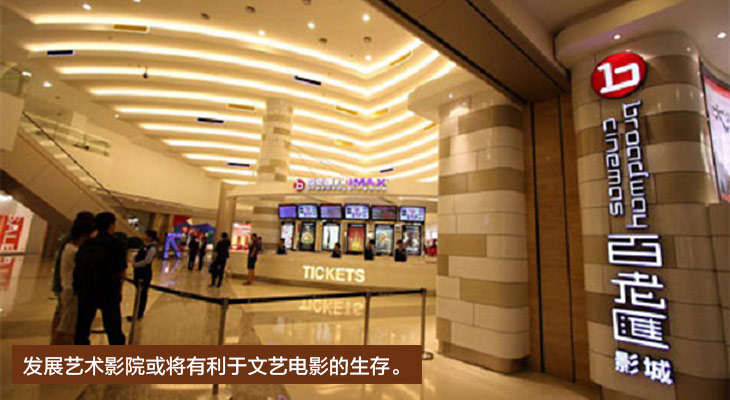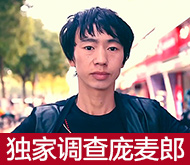1. Money has changed the game rules of the distribution industry
Don't understand rebate and box office? Destined to suffer!
If you are a new director who has made a film and is about to be released, you are very nervous and actively taking the actors to participate in all publicity, accepting various interviews, going to press conferences all over the country, and doing pre screening for opinion leaders and audiences. You think such behavior will bring about a positive effect - making the theater manager feel that the film quality is good and people pay attention to it, Then give a better layout. For example, in a day's golden games, it can account for 4.
However, after the film was released, you found that the arrangement of the film was very poor. The familiar cinema manager might tell you: "Brother, you didn't give back money or buy a movie, I really can't make it. You saw XX films and did so." Then, you found that this XX film, which is not as good as yours in quality and size, has obtained a higher arrangement, You can't help crying out for yourself. However, the game rules of the distribution industry have indeed changed. Rebate and box office buying have become the most common means to obtain high ranked films and high box office. If you do not understand the small means used by your peers, you are doomed to fall.
The specific practice of buying box office and rebate is complicated but not complicated. The key is to have money and do things well. Jun A is a senior manager of a distribution company. He once participated in a large-scale box office buying. He revealed that at that time, the film maker spent 60 million yuan to buy box offices all over the country, and the specific operation was carried out by the distribution company. "The film maker first paid the 60 million yuan to our company's account, and more than 200 staff from all over the country went to various cities to talk with cinemas or cinemas, and directly paid the money and tickets." The tickets have been issued, although it is unknown whether they have reached the audience, but the number has been included in the total box office, and the initial number of box office of the film has become 60 million.
Because of the large number of tickets purchased, the membership price of each theater to the issuer is lower than the retail price. The membership price of Wanda is the most expensive, 45-50 yuan, and the cheapest price of other theaters is 25 yuan. The distributor does not need to buy all the tickets for one show. Jun A said: "The cinema requires us to contract at least 50% of the tickets before they can open a show. At the same time, the cinema can sell some tickets through normal channels, and our 50% plays a role in ensuring that they earn some money."
This kind of discount enables film makers to buy a considerable number of shows with 60 million yuan, which not only gains a high box office base, but also has a good number when reporting the box office to the outside world, and has grasped the key point of competition - preemption of film layout. This also means that other films released at the same time have been excluded.
Another means of operation can also achieve the same goal - film makers and distributors reduce the proportion of box office distribution, and give a part of their box office profits to cinemas, which is called rebate in the industry. As a rule, after deducting 3.3% business tax and 5% special fund for films, film makers and cinemas obtained 43% and 57% of the box office respectively. The rebate is that the film maker gives 2 to 10 percent of the original 43 percent to the cinema. Stimulated by the interests, the cinema will certainly give higher film arrangement to ensure that these films take the lead in the box office battle.
In June 2013, when Small Times 1 was released, Zhu Sanwei, the film critic, made the film's rebate agreement public on his microblog: "In the first week of the film's release, the film makers spent a lot of money to buy tickets in many cinemas; when the film layout reached 40%, they gave one point to the cinema, and 45% gave two points to the cinema. Can you behave yourself?" A cinema insider also said: "In June 2013, there was a film, and we sent a letter to our cinema staff, in which we knelt down and begged us to give it the scheduled number of times and arrange as many films as possible, and then the letter mentioned how much rebate we would be given. There was a contract for rebate, which started about 14 years ago."
The situation is changing. If the box office is still in secret operation, rebate has become a kind of "promotional means" for industry insiders to see no surprise. More and more films choose to publicly announce a reduction in the proportion of distribution. Nearly two weeks after the release of the film Equator, Huaxia, the distribution company, publicly sent the Notice on the Adjustment of the Distribution Proportion of the Film Equator to all theater companies and cinemas, announcing that the distribution proportion of the film equator will be adjusted from May 12, and the income of the film owners and distributors will be reduced by 10%.
Return points can be divided into two ways: return before and return after screening. In a competitive good schedule, in order to occupy the favorable terrain in the schedule and defeat other competitors, the film makers will discuss the rebate details with the cinema lines and cinemas in advance, so that the cinemas will tend to themselves when arranging films. The other way is to return after screening. The film maker will first put the film on the market to try its response, and then adjust its strategy according to its box office expectations.
Whether it is a pre screening return or a post screening return, the specific amount of rebate is not a one size fits all, but a phased and stepped rebate. In particular, the popularity of screening films has declined. In order to maintain the layout, the film makers will increase the rebate points. The publisher of Equator revealed that they had formulated strategies for different stages before its release: "For example, how to do when entering the May 1st stage, and how much to return when encountering Fulian 2 later."
2. Money is not necessarily capricious, and the cinema may refuse
Buying the box office is related to the brand of the cinema, so you should find the right time for rebate
Long term operation has made the "rebate" have a certain technical content, and we must seize the best time to achieve the best results. "It's really useless for us to start to reduce the proportion of distribution on May 12," said Miss B, the publisher of Equator. "If we do it a week earlier, it will be effective, but because the leader and executor of the distribution are not the same company, the response is a bit delayed." Miss C, the manager of a film studio in Guangdong, said that because Equator is a Hong Kong film, it sells well in Guangdong, So it is true that there will be two more rows on weekends after rebate, but there will not be much change: "Fu Lian 2 sells very well, and I normally earn more money from selling Fu Lian 2 than the rebate."
In the face of rebate, film makers and cinemas are calculating their own tips. For example, film makers will calculate how many rebate points to be returned, so that the film layout can meet the expectations and the box office can exceed the established goal, and at the same time, they will not earn less because they return too much; Cinemas should consider whether to earn more from new films or accept rebates to increase the appearance of old films. The most important thing is to find the right time to make both parties happy.
"The cinema is the cheapest place to buy the box office. Because the cinema has already received the money, it means that I have collected the money for this meal first. If one audience does not come, even the cost of the screening may be saved," A Jun said, "because the act of buying the box office is that the film side holds the money to benefit the cinema, so the communication with the cinema is relatively smooth."
However, being rich may not be capricious. Miss D, the manager of a cinema in Jiangsu, said that the publisher of the film Hero X War had asked her to buy the box office, but she refused at the time: "I thought the film was average in size, and it was a bit scary to do so. The attendance rate of our cinema has always been good, and other films can also achieve this effect. Why should I accept this kind of box office? Isn't it a brand smashing? " She also revealed that there was another reason for refusing to buy the box office of "Hero X War" at that time: "Daylight Fireworks" and "Hero X War" were released at the same time. Our cinema line was the publisher of "Daylight Fireworks", and we were asked to fully cooperate with the layout of "Daylight Fireworks" at that time. "
Miss D's words reveal another mystery. Nowadays, many film investors and distributors are the same company, and they also have theater resources, which is equivalent to the integration of production, distribution and screening. The popular saying is that the whole industry chain thinking is, in essence, an industry monopoly. In the 1920s, Paramount Pictures in the United States was targeted by the anti-monopoly department of the government because it was too powerful. In 1948, the Supreme Court of the United States issued Paramount Case, prohibiting major Hollywood companies from vertically operating production, distribution and screening businesses. But in China, such a one-stop giant covering the whole industry is forming one after another.
As a new director, if you only know the above basic operation methods, you can't compete with the old guns in the distribution industry. "Now there is almost no box office for paying money and paying tickets," said a resident distributor
In specific operations, the way of buying box office is becoming more and more complex, and seems to be more and more rationalized and regularized. The rebate also led to another kind of chaos in the publishing world - stealing the box office. If you don't understand the rules of the game, you will not only be in a weak position in the competition, but also be a direct victim of stolen box office.
1. Partners, distributors and distributors are all playing in the reserved arena
The essence is self production and self sale
"The partners, film makers, distributors, and cinemas all reserve space. Part of our usual job is to find partners and ask them to reserve space. For example, if there is a certain brand of car in the film, we will talk with customers and ask them to come out of the wallet, and we will help them get the price of the cinema." A resident distributor introduced.
According to an insider, partners sometimes take the initiative to reserve a large number of venues and give them to their customers: "For example, Audi reserved 300 venues a day for" The House of Fuchun Mountain ", and then 300 to 500 thousand a day, just to support the film over 300 million. And the communication company that XXX (King of Music) endorses also gave his starring film 10 million venues."
Strictly speaking, the audience is not a consumer, but the stakeholders related to the film are still spending money to buy the film, and then giving it away through the event to make a show for their own film.
2. 9.9 The reason behind the low price ticket is that e-commerce and film companies spend a lot of money to subsidize
After the rise of e-commerce, a new form of e-commerce private space has emerged, which is more convenient to operate, more influential and larger in scale. For blockbusters with good market prospects, e-commerce companies all want to talk about exclusive cooperation. They often spend tens of millions of dollars in advance to reserve a venue to ensure the film production volume. For example, the exclusive cooperation between "Xinhua Road Release" and Cat's Eye film. Cat's Eye film is based on tens of millions of dollars in investment. Resident personnel negotiate with each theater, and there are corresponding requirements for each theater, For example, ask for more games or more golden games.
A staff member of the producer revealed one case of his company's cooperation with Taobao Film last year: "When the film was about to arrive, we went to discuss cooperation with three cinemas, including Jin Yi. At that time, we invested 1 million yuan each with Taobao film tickets, and we asked the three cinemas to guarantee our two afternoon sessions and two golden sessions every day three days before the film was released. The cinema requires us to buy at least 40% of the seats so that we can start. " In this case, the investment of 2 million yuan is used to buy 40% of the seats for four shows every day three days before the release.
In traditional private rooms, tickets are given away. Today's e-commerce is equivalent to buying tickets back with the membership price and then distributing them at a lower price. Although the mode of full gift has been changed, making most of the film tickets enter the market circulation, the difference brought by the low price mode is paid by the film maker and e-commerce.
3. A box office of 100 yuan can be made for a minimum of 8.3 yuan
Whether it is private booking or e-commerce subsidies, it needs considerable investment as support. In more extreme cases, the film makers and distributors can produce very high box office figures with only a small amount of money, and can produce 100% of the box office at the lowest cost of 8.3%.
The specific approach is to make a fake market. "We call it overbooking for short," said a person in the industry. "Generally, cinemas will choose the morning and evening shows with the least audience. This show can be seen on the film arranging and ticketing system of the cinema, but it is sold out, and there is no audience at all. Then of course, the issuer can't get a penny of the box office, and the cinema just gets some benefit fees. For example, for a 100 yuan ticket, a 10 yuan premium may be given. But when the number of sessions is lined up, the box office will come out. "
In this kind of operation, the cinema receives less than 100 yuan and the film party receives less than 43% of the ticket, but the number of box office has already come out. It is equivalent to that the film makers and distributors used a small amount of premium to buy a high box office. Industry insiders said: "It is easy to see how to make such a tricky film. For example, a film has not been arranged in the country, and you suddenly find that it still sells for several million a day, and then it can't go offline. For example," XXX "(a movie about sunken ships with many stars) sold for 4 million a day last week."
For some film makers with cinema resources, it is easier to carry out this operation, and even the benefit fee can be saved. "For example, if XX company brings its own theater, I only show it in its own theater. I am both the film maker and the terminal. I also take 43% of the film maker and 57% of the terminal. That is to say, I only need to pay 5% of the special funds and 3.3% of the business tax for this part, and then I can report this 100% of the box office, and I can report 100% for 8 yuan and 3 yuan. A certain martial arts film that won countless awards was just to save face for the director and just made a fake of 33 million yuan, "an industry insider revealed such a case," this evidence is also easy to find. You can check the weekly box office ranking list of theaters. At that time, 15 of these theaters of XX Company entered the top 20 of the ranking list, which is very abnormal. Some cinemas can't even enter the top 100 in the country at ordinary times, and you suddenly run to the top several. Don't you think it's a problem? "
4. Don't give me a rebate? Then move your box office
Driven by the profit of rebate, some cinemas are likely to use improper means of stealing box office to move the box office of a film without rebate to a film with rebate. The issuer may also become the leader of this behavior, encouraging cinemas to steal the box office. An insider in the industry said: "In 2013, when XX Company released an inspirational film and a youth film at the same time, it moved the box office of the inspirational film to youth film. Because XX is the leading distributor of youth films, just the executive distributor of inspirational films, that is, he works below. He can't get the maximum benefit from inspirational films, so the United Cinema did this thing to move the box office. "
Stealing the box office in the form of handwritten tickets has been the lowest level means. Nowadays, the common way for cinemas is to use dual systems. The specific operation mode is that a cinema buys two sets of ticketing systems, one is responsible for ticketing, and the other is responsible for reporting the box office to the country. The ticketing system prints out the tickets of film A, but the reporting system counts the box office of film B. This way of stealing the box office is hidden, and it is generally difficult to find out.
In the distribution of films, film makers, distributors, cinemas/theaters, and e-commerce are the most important four links in the interest chain. From the perspective of the operation mode of box office buying and rebate, all parties have made different degrees of profits in this process, which may also be a major reason why the phenomenon of box office buying and rebate has always existed and has gradually become clear in the process of constant alienation.
1. Film makers and issuers - name and money
"Buying box office and rebates can drive the box office share and layout rate of films in the first week," said A Jun, who has participated in box office buying. In short, the box office and rebate guarantees the corresponding film arrangement, while creating momentum for the film and creating a large atmosphere, which can indeed attract a large number of traffic customers with weak purpose; At the same time, it also stimulates the arrangement of films to some extent, thus stimulating the real box office of films. In that year, a summer thriller starring Yang Mi once bought the box office of the first three days, causing the illusion of false height on the first weekend. The cinema line gave a lot of film arrangement. Fortunately, this film did attract a large number of student audiences in the later stage, and successfully achieved high box office results.
"Although the money to buy the box office comes from the sheep, for the sake of good performance of the company, or to preserve the reputation of the cooperative director, the film makers will do so," the insiders said frankly, "even if they don't actually earn much money in the end, the surface of the box office is red, which may bring stock opportunities to the listed film companies."
"Sometimes, the box office of 99.99 million yuan and 100 million yuan is not the difference of reputation. The country has introduced a policy long ago, and 3D films with high box office will be rewarded additionally." In November 2012, the country issued a new policy that announced that 3D films with different box office achievements will be rewarded. For example, if the box office revenue is between 50 million yuan and 100 million yuan, 1 million yuan will be awarded; If the box office revenue is more than 500 million yuan, 10 million yuan will be awarded; In a word, the higher the box office, the higher the reward. Among them, 100 million, 300 million and 500 million are the dividing points for getting higher rewards. If the actual box office of a film is close to these amounts, the film makers will often choose the way of rebate, so that the final box office exceeds these dividing lines, both in order to obtain rewards and win good luck.
The issuer and the film maker are generally a community of interests. However, if the issuer uses a guaranteed release method, it actually forms a gambling relationship with the film maker. In order to lose less or earn more, the issuer will also actively play some tricks. The insider said: "Last year, XX Company made a minimum guarantee of 600 million yuan for the sunken ship blockbuster. As a result, the film was tragic. XX Company found a familiar theater line and simply used the way of making a fake to survive for a while."
In order to become a front-line issuing company, the issuer will also do high box office from its own long-term interests. "XX Company has made several films that have guaranteed the minimum price, and it is also a face saver. You can see that other companies have some very good films. What does his family have? It's not nice to say so," added the insider.
2. E-commerce - for users and money
"The main purpose of the low price strategy is to win more customers. There is no limit to customers. Of course, we hope that the more the better. The most valuable thing in this era is customer resources." An e-commerce leader said frankly. It is understood that in terms of the general market in the industry, the cost of adding an activated user to an e-commerce app is close to 12 yuan. In addition, users' consumption habits and data are also the huge potential value of e-commerce. With a low price similar to 9.9, e-commerce can gain a customer and understand their consumption habits. Therefore, it is not a big deal to post more than ten or twenty yuan at the box office. In addition to low price competition, e-commerce will also start more and more exclusive cooperation in order to win more customers. For example, Cat's Eye has an exclusive cooperation with Heart Blossom Road Release. If the audience wants to buy tickets for Heart Blossom Road Release online, they must become a customer of Cat's Eye. In this process, e-commerce is expanding its channels, influence and market share.
In addition to obtaining customer resources, e-commerce is also gradually involved in the box office sharing process, which is generally conducted in the form of wager. "Our" Single Men and Women "once wagered with Cat's Eye," a staff member of Huanya said, "Cat's Eye cast 30 million yuan for Huanya. At that time, Cat's Eye wagered with Huanya. If the box office of the movie exceeded 200 million yuan, half of the people might have more than 200 million yuan. This 200 million yuan was negotiated by both parties, probably to return to our own line. Huanya is willing to gamble 200 million yuan if it considers that 200 million yuan can recover the cost. But Huanya's film is less than 198 million yuan. " In this case, the cat's eye bet failed, but e-commerce dared to invest heavily in the bet, which is generally full of confidence in the film. In order to get a share in the box office, e-commerce will also integrate its online and offline resources to fully cooperate with the film promotion.
E-commerce pays for the distribution. When huge user data accumulates in the background, low-cost tickets will become online distribution, which will comprehensively affect the layout of cinemas. The impact of the existing ground distribution team and cinemas on the movie box office will gradually weaken. The cake of film distribution will be owned by e-commerce.
Cinema line/cinema - the biggest winner on the surface
In short, the purpose of the film maker is to obtain better box office results and higher box office share. The issuer of guaranteed release wants to reduce losses or obtain box office share. E-commerce hopes to gain more customers and become a co producer to participate in the box office share. Although the three parties have different purposes, they all need to show their goodwill to the cinema in order to obtain better film arrangement. In this sense, cinema lines and cinemas seem to have become the biggest winners, but in fact, cinemas have also been "kidnapped" by real estate agents outside the interest chain. Taking a second tier provincial capital city as an example, the rent of a cinema in the center of the city is 10 million per year. In addition to the water, electricity, property and labor costs, the seemingly strong cinema side also has unspeakable difficulties.
Of course, there are exceptions. Compared with other cinemas, the biggest advantage of Wanda cinemas is that all cinemas are under direct management and do not adopt franchise system. All assets are also owned by the group and are not kidnapped by rent. It is worth mentioning that in addition to cinema lines, there is also a cinema management company. For example, UME is not a cinema line, but a film professional group management company. The assets belong to the group, and the cinema does not need to worry about rent. These cinemas choose to join different cinemas and only need to pay a certain amount of management fees.
Box office buying and rebate make film makers, distributors, e-commerce companies and cinemas profit to varying degrees. If you do not carry out these operations, the interests of your film will be directly affected, which may be due to low film arrangement or stolen box office. As a result, two different views emerged. Of course, the party whose interests were damaged believed that it had encountered unfair competition, but the vested interest party defended itself with "the state has not explicitly prohibited it". The establishment of a sound film market regulation seems to be the ultimate solution.
PK of two viewpoints
The state has not explicitly forbidden you to compete unfairly
The party profiting from box office buying and rebate has two kinds of logic to defend its own behavior: first, I have the ability to do it; Second, I do this as normal marketing.
"I have the money, strength and resources to do this, why don't I do it? I can't do it because others are unable to do it." In the eyes of some distributors, whether it is rebate, box office or bribery of theater managers, it is just a kind of "public relations fees". Just like film investment, some invest more and some invest less. It is understandable that the film makers use their own distribution resources to replace better publicity means: "Everyone says that they buy box office and rebates, but I think it's just sour grapes."
"I think rebate is a kind of incentive policy. You have to give a sales commission to sell products. What's more, this is a kind of sales. One is general distribution, the other is distributors. There are many distributors. It's normal for you to give a reward mechanism," said a publisher. Another analogy goes like this: "For example, McDonald's delivers hamburgers free of charge, the same thing, right? Then you can't say to scold him. You really have no shame. You don't earn any money. As long as you achieve results, you can do business." Others in the industry use the situation in the United States as an analogy: "You can see that the proportion of accounts in the United States is not uniform. They are also tiered accounts. The longer the film is shown, the more points will be given to the cinema. The same reason is true for us to reduce the proportion of accounts."
Many industry insiders believe that the large-scale box office shopping like Hero X War is indeed contemptible, but the normal scale of private and e-commerce activities are acceptable. In the view of a theater manager, the reserved space is a promotional means that has always existed. In addition to some sponsors who have big local tyrants, it is generally within the normal range. "I think the reserved space and Hero X War The difference between large-scale shopping is that after the extra tickets are sent out, there will indeed be audiences to see them, because we will also select customers in a targeted way, and this is all money. Chinese audiences will feel that it is not worth watching. " Even when it comes to such behaviors as faking, the insiders also believe that although it is immoral, it does not violate the law: "faking is just that we are willing to reach a consensus, and the cinemas do not want this money, but only take some benefit fees. We have no tricks. If you steal the box office, there must be a so-called victim, but there is no faking."
But in the general environment of rebate and box office buying, the frustrated film makers obviously don't think so. What they call for is a fairer market access mechanism.
Wang Xiaoshuai's "The intruder" had only 1% of the film arrangement in May 1st this year. He was so shocked that he went to the cinema to understand the market situation and found that a movie in the same period had bought box office. "They are directly trading, rather than using the quality and publicity of normal films to influence the market. For our film, they all concluded that 'you didn't promote well'. In fact, the publicity fee this time is 8 million yuan, which is good. I didn't have any publicity fees before. When I was 11, two people in the office relied on microblogs to click and transfer. But they take this as an example, because you don't have a direct transaction with him. As soon as he spoke to the people all over the country, the people all over the country believed that because there was no film arrangement for propaganda, they avoided all the tricks here. "
Wang Xiaoshuai believes that the films released at the same time deprived him of the opportunity of fair competition by means of box office buying and rebate. His films were sentenced to death in advance before they entered the market and were tested by the audience. He pointed out that now there is a huge system of cinemas with resources and distribution, and people outside of it will not have the opportunity: "China does not have a market access mechanism, only to hold the thigh, only to hold the thigh with distribution and cinemas. Each theater line has its own children. If the theater lines unite to take care of their children, they will form a large organization. If any company does not have any interest relationship with them, you will not be able to enter their system, so you can only watch it, and there is no hope for any basic production. "
Foreign models can be used for reference
The final destination is the establishment of laws and regulations
"The state has not explicitly stipulated that we cannot do this!" This is the ultimate justification of the beneficiary.
"Why does the country not restrict them to do so?" This is the question and cry of the frustrated party.
The question finally points to the state's supervision of the current film market, whether to intervene in the distribution process, and what laws and regulations should be established is the most worthy of discussion and the key to solving this problem.
Before that, let's take a look at the practices of the developed film market. According to Sina Entertainment, box office buying does not exist in the developed film market. An official of French film and television management organization CNC told us that box office buying would never happen in France because it was too expensive. He could not understand why this phenomenon existed in the Chinese market. Industry insiders analysis: "The French film market is mature, and the audience also has a relatively mature habit of watching movies, and will not follow the trend of Chinese audiences. The situation of box office buying should be a unique phenomenon in the early stage of the Chinese film market, just like some problems in other areas of film, which should be solved with the overall progress of Chinese films."
How to solve it specifically? The model of the United States and France may provide a reference. First of all, the profit model of Chinese films is relatively simple, mainly relying on box office, which is also the reason why film makers blindly pursue high box office. "The 7-tier window distribution mode in the United States can ensure that the film makers have a relatively long-term income, not only relying on the box office," said an insider, "In the United States, there are seven windows, namely, cinema, cable TV's' pay per film 'channel, cable film channel, home video, cable TV, and wireless TV, to ensure that movies can earn income three years after they are released and offline."
The artistic film parties represented by Wang Xiaoshuai are relatively weak in today's Chinese market. What they call for is a relatively fair competition environment and market access mechanism, such as limiting the maximum number of films for a super movie, and stipulating the minimum number of films and release time for a movie. According to the official of French CNC, France has a similar regulation. CNC stipulates that a film can not have more than 25% of the film layout, and at least not less than the film layout of one cinema. This regulation prevents blockbusters from dominating the market, and also ensures the survival space of small films. In France, there must be no "one-day tour", because CNC stipulates that a movie should be shown in the cinema for at least two weeks.
It is unfair to put sharks like commercial films and small fish like literary films in a pool to compete. Both commercial films and art films have made a call for separate screening. A senior distribution practitioner proposed that if the conditions for establishing art theaters in China are not yet ripe, Taiwan's model can also be used for reference: "The largest cinema in Taipei is called Weixiu Cinema, which has 16 halls, but it has two halls dedicated to theatrical films. The film I went to investigate is called Flying Against the Light." The film was released in Taiwan for three months, and the box office was more than 20 million yuan. The cost of that film has been recovered in Taiwan. It has been released for a long time, two times a day, but insists on releasing it every day. " In the mainland, there are also art theaters like moma, but it is difficult to expand because of the lack of government support.
If rebate is a promotion method similar to the ladder like account splitting in the United States, if the box office is gradually recognized in the form of private booking and e-commerce subsidies, if these two operation methods can really benefit some film makers and make China's box office continuously reach new heights, does it mean that this is no problem?
From the long-term perspective of film diversification and healthy market development, the crisis has surfaced. First of all, blockbusters using rebate and box office methods have squeezed the living space of small and medium-sized films such as literary films. The Chinese art film market itself has not yet started. In today's market environment, art films that are small in size and do not have enough capital for rebate and box office operations can only become the victims of layout. Secondly, under the baton of money, cinema layout may decide what films China will shoot in the future. When a film has achieved great success at the box office through rebate and box office buying, it will lead more investors to shoot similar films, and then use the same distribution model experience to replicate this success at the box office, thus leading to more and more homogeneous, streamlined films. The final result is that domestic bad films cannot cultivate audiences, and the market environment is unwilling to support domestic good films, so audiences can only be kidnapped by Hollywood blockbusters. The vicious circle of Hollywood blockbusters extruding domestic blockbusters, domestic blockbusters extruding domestic medium-sized films, and medium-sized films extruding small films is formed. How can Chinese films resist the threat of Hollywood when the import of American films is fully opened in 2017?
Director Wang Xiaoshuai once went to a cinema in a second tier city for audience meeting when he was promoting his "The Intruder". "I didn't dare to look up after entering the cinema. There was no film arrangement, which was too embarrassing." At the end of the meeting, the cinema manager came to shake hands with Wang Xiaoshuai and thanked him. Wang Xiaoshuai finally couldn't resist. He looked directly at the manager who avoided his eyes and said: "You are the manager in this cinema, who has the right to arrange films. If one day, you go out of this movie theater to see a doctor in the hospital, and you go to the government department to work, do you also hope that the society is fair? Everyone has equal rights? "
